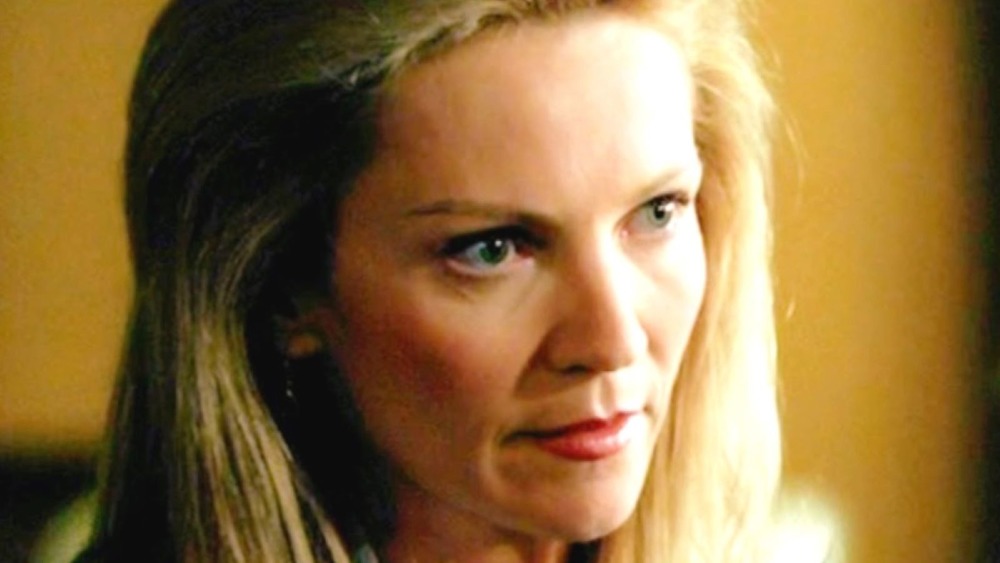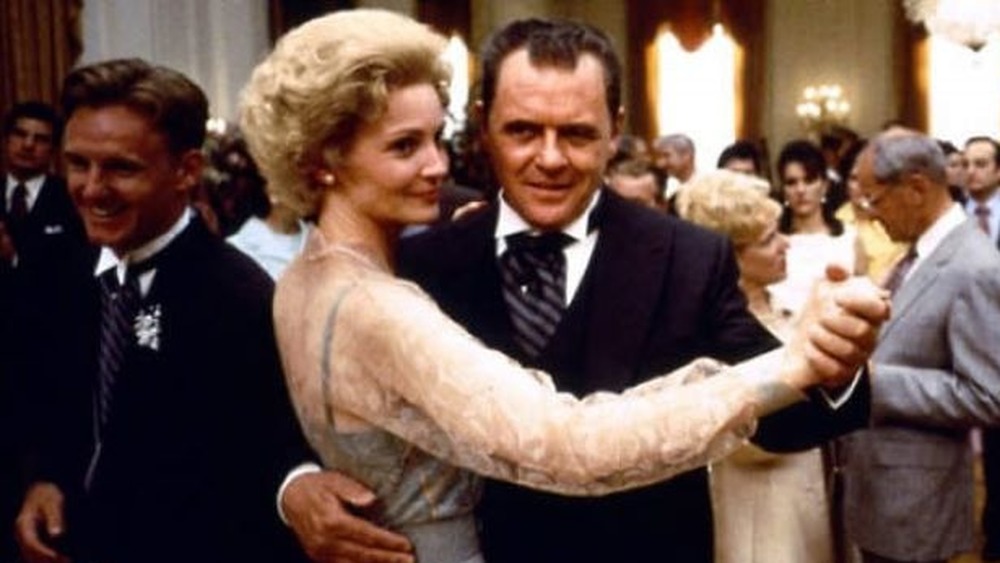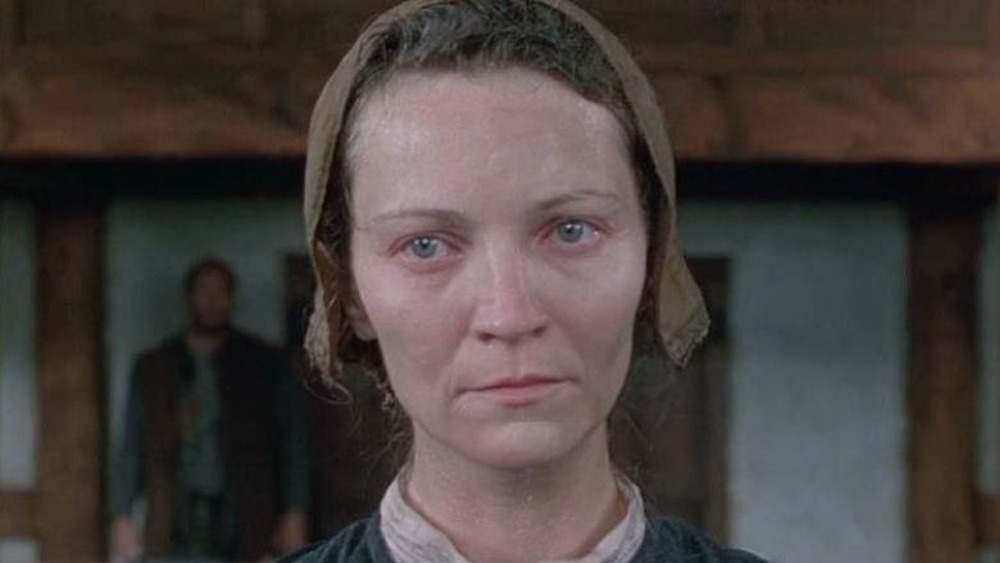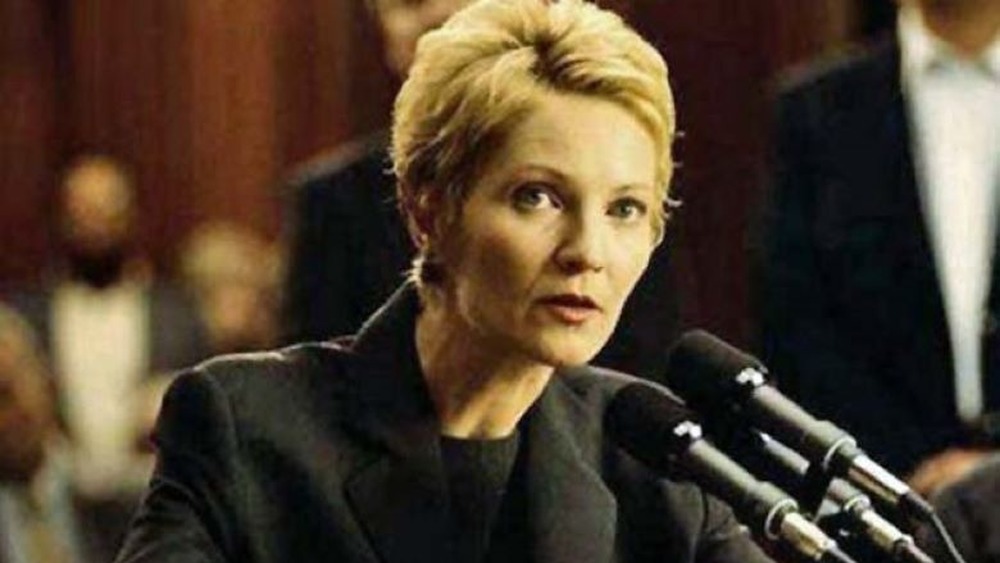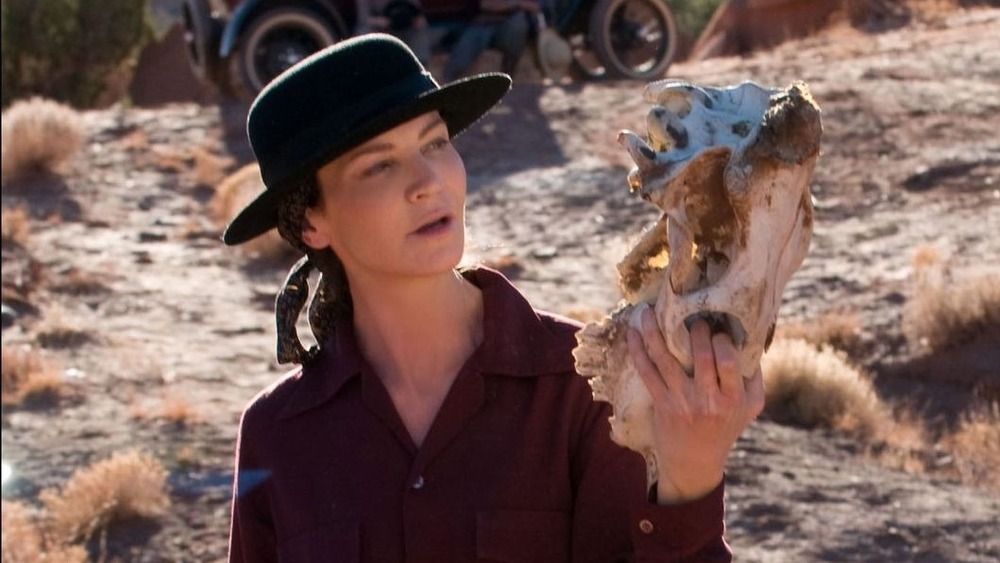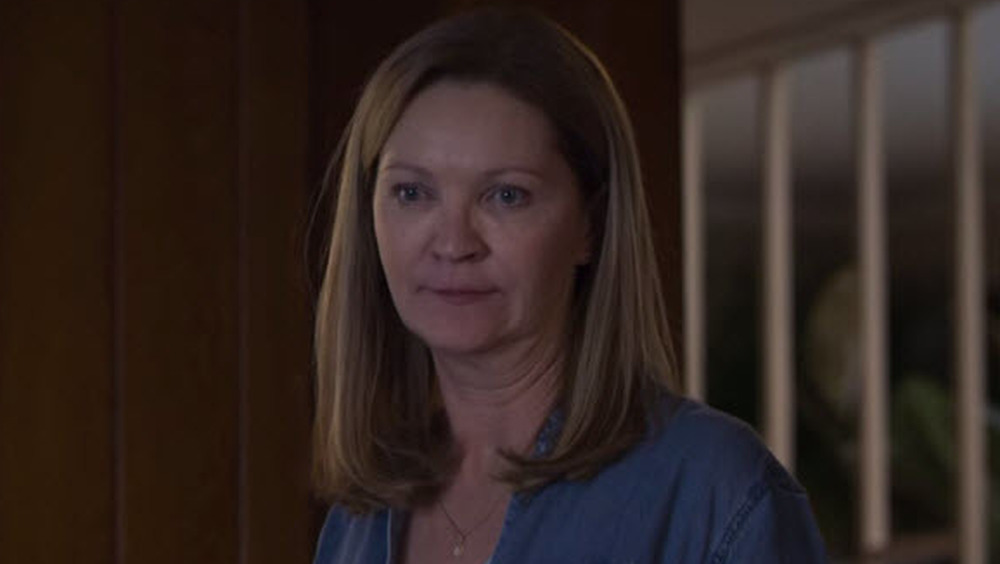Why Pamela Landy From The Bourne Series Looks So Familiar
In action films like those of the Bourne series, there are always going to be two kinds of characters: those putting the action in "action film," and those keeping the gears grinding behind the scenes. It can be difficult to make the latter seem as interesting as the former, since one's running around blowing stuff up and the other's at a desk making phone calls. Depending on the acting and the writing, though, the chasm between the two types can shrink (if not flip around entirely). Pamela Landy is one such character.
Appearing prominently in The Bourne Supremacy and The Bourne Ultimatum, and briefly in The Bourne Legacy, Landy not only gets the chance to join in on the action herself, but changes organically thanks to her relationship with Jason Bourne (Matt Damon). She may be CIA, obligated to follow rules and paint by the numbers, but she's a human being, so she can't help but follow her inner compass instead once in a while. If Landy actress Joan Allen seems familiar, here's where you may have seen her before.
Allen was America's First Lady in Nixon
Director Oliver Stone made three films about the American presidency: 1991's JFK, 2008's W., and the middle child, 1995's Nixon. Like the other two films, Nixon is about the president you'd expect it to be about, and how presidents are not islands: they're people, interacting with others as much as anyone else would. Those people range from important advisors like H. R. Haldeman (James Woods) to valets and personal friends like Manolo Sanchez (Tony Plana). Of course, Nixon (Anthony Hopkins) would be nothing without the First Lady, Pat (Allen), at his side.
Being the President of the United States comes with its pressures, though, and as students of history know, those pressures broke Nixon. Pat tries to keep her husband grounded nonetheless — to remind him that he may never earn public approval, but that her hard-won love for him is the realest thing he'll ever know. She's stumbled just as he has, but he's all that really matters to her, and she wishes he felt the same. The box office wasn't kind to Nixon, but the Academy Awards were, with Allen earning a nomination for Best Supporting Actress.
Allen was accused of witchcraft in an adaptation of The Crucible
It's crazy to think that, just a few centuries ago, a prepubescent America openly prosecuted women believed to have been practicing witchcraft. The Salem witch trials really happened, though, and playwright Arthur Miller adapted the events into The Crucible, which uses the infamous witch trials as a metaphor for McCarthyism, and came to be considered a classic of American drama. It was further adapted into multiple screen productions, including director Nicholas Hynter's relatively well received 1996 film.
Allen plays Elizabeth Proctor, one of the many women accused of witchcraft despite never having performed rituals of any sort. A ritual was performed because of her, however, which drives the main drama of the story. She does whatever she can to not only clear herself of her charges, but preserve the reputation of her husband John (Daniel Day-Lewis). It may not be entirely historically accurate, but no one can doubt the powerful performances on display. Allen's performance in particular was lauded, earning her another nod at the Academy Awards, and plenty of other accolades and praise besides.
Allen's role in The Contender was written with her in mind
Following the death of the Vice President in The Contender, President Jackson Evans (Jeff Bridges) must choose a replacement. Jack Hathaway (William Petersen), governor of Virginia, seems the "obvious" choice, but he instead goes with Laine Billings Hanson (Allen), a senator from Ohio. Problem is, no one believes she's qualified, and her past may be too controversial for the White House. And so begins a long, painful battle to get Hanson elected to the office Evans believes she deserves despite everything.
In the DVD commentary for the film, director and screenwriter Rod Lurie admits that he wrote the part of Hanson with Allen in mind — that he wanted to give her a different sort of role than the ones she usually played. The choice paid dividends, earning Allen her first Academy Award nomination for Best Actress (as opposed to her previous two Best Supporting Actress nods). It remains one of her most legendary onscreen appearances, proving she could indeed diversify her portfolio by playing characters she normally wouldn't.
Allen embodied the titular artist in Georgia O'Keeffe
Art may be subjective (though even that depends on who you ask, so let's go with it for clarity's sake), but behind every work of art is the artist who made it. Indeed, artists like Vincent Van Gogh, Frida Kahlo, and Michelangelo Merisi da Caravaggio have gotten almost as much attention as their art, their lives turned into biopics. It was nearly inevitable, then, that iconic American artist Georgia O'Keeffe eventually got a biopic of her own: the Bob Balaban-directed television film Georgia O'Keeffe, starring Allen in the title role.
The core drama of the film kicks off when photographer and impresario Alfred Stieglitz (Jeremy Irons) discovers and displays O'Keeffe's work without her permission, which understandably angers her. But just like the real O'Keeffe, Allen's O'Keeffe falls for Stieglitz, beginning a relationship that shifts with time as her art takes precedence over all else. The story chronicling the rough intersection between love and creativity earned Allen both Golden Globe and Emmy nominations.
Allen was part of a strained mother-daughter relationship in Room
Based on the novel of the same name by Emma Donoghue, Room (whose screenplay Donoghue herself penned) is the story of a mother, Joy Newsome (Brie Larson), and her son Jack (Jacob Tremblay), both captives of a man they call "Old Nick" (Sean Bridgers). He keeps Joy and Jack in a pathetic little shed they dub "Room," equipped with only the most basic of necessities and — amazingly — a TV. Eventually, they escape Old Nick's tyranny — which Joy always did her best to shield Jack from — but adjusting to life outside proves to be an arduous task all its own.
Allen plays Joy's mother Nancy, who remarried in the time Joy was held captive. Needless to say, mother and daughter both changed much over their years of separation, and getting along isn't as easy as it once might have been; Nancy also has trouble clicking with Jack, since Room is all he's ever known up to this point. There's a certain sadness in family relationships deteriorating not because of something someone did, but because of life's circumstances. That sort of depressing nuance is crystal clear in Allen's performance, which earned her the Canadian Screen Award for Best Actress in a Supporting Role.
Allen will appear in the upcoming miniseries Lisey's Story, based on the eponymous Stephen King novel. There's little doubt the actress will continue to impress; it's all just a matter of when COVID-19 lets Hollywood scheduling get back on track.
